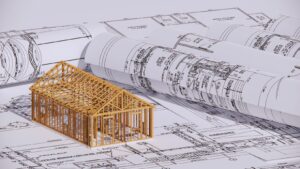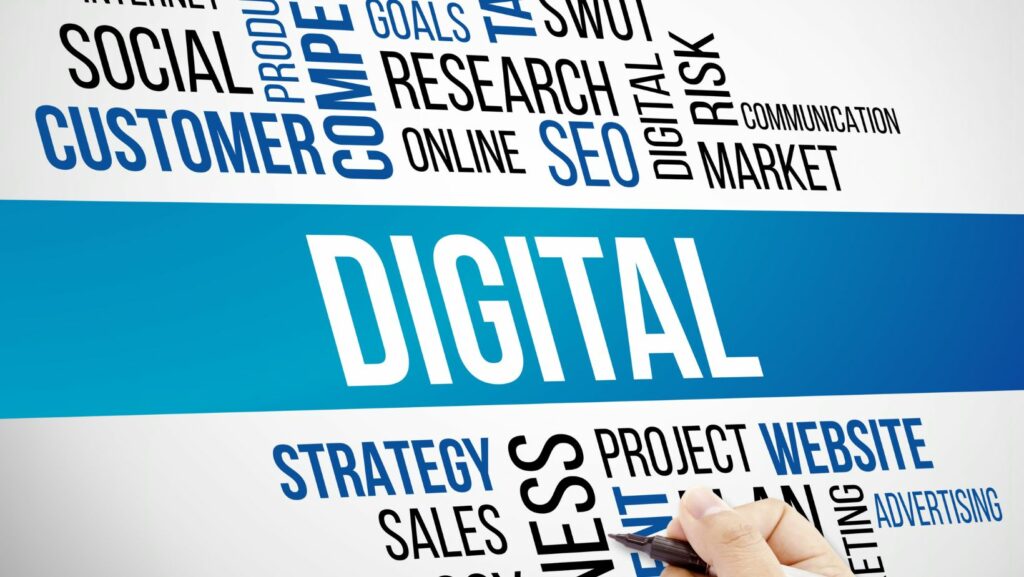In today’s digital landscape where first impressions happen at lightspeed architectural and design firms need more than just beautiful portfolios – they need a powerful online presence. A specialized digital agency focusing on architecture and design transforms stunning real-world creations into compelling digital experiences that capture attention and drive results.
These agencies blend creative expertise with technical prowess delivering everything from immersive 3D visualizations to responsive websites that showcase architectural projects in their full glory. They understand the unique challenges of presenting spatial concepts online and know exactly how to translate complex designs into user-friendly digital interfaces that resonate with clients. It’s where pixel-perfect design meets strategic digital marketing creating a foundation for architecture firms to thrive in an increasingly connected world.
Architectural and Design Digital Agency
An architectural and design digital agency specializes in transforming architectural concepts into compelling digital experiences. These agencies bridge the gap between traditional architectural practices and modern digital marketing requirements through specialized services and technological expertise.
Core Services and Offerings
Digital architectural agencies deliver comprehensive solutions that include 3D visualization rendering interactive walkthroughs high-quality CGI animations. Their service portfolio encompasses virtual reality presentations architectural photography digital marketing campaigns website development brand identity creation. Key offerings include:
- Interactive Website Development with portfolio showcases project galleries client portals
- Digital Asset Creation including 3D renderings architectural animations virtual tours
- Marketing Strategy Development focusing on SEO content creation social media management
- Brand Identity Systems featuring logo design typography guidelines visual standards
- Digital Project Documentation incorporating BIM modeling technical specifications cloud storage
Combining Technology with Design Expertise
Digital agencies integrate advanced technologies with architectural knowledge to create innovative digital solutions. Their teams combine:
- Visualization Software mastery using AutoCAD 3ds Max SketchUp Revit
- Web Development expertise incorporating React Angular WordPress platforms
- Digital Marketing tools including Google Analytics SEO software CRM systems
- Project Management applications featuring BIM coordination scheduling platforms
- Creative Design programs utilizing Adobe Creative Suite Figma InVision
- Real-time rendering capabilities for instant design modifications
- Cloud-based collaboration tools enabling remote team coordination
- Mobile-first development approaches ensuring cross-platform accessibility
- Data-driven analytics measuring project performance client engagement metrics
- Automated documentation systems streamlining project workflows
The Role of Digital Innovation in Modern Architecture
Digital innovation transforms traditional architectural practices through advanced technologies that enhance design visualization presentation. This evolution creates new possibilities for client engagement project efficiency.
Virtual Reality and 3D Visualization
 Digital agencies leverage virtual reality technology to create immersive architectural experiences that transport clients into unbuilt spaces. Advanced 3D visualization tools generate photorealistic renders illustrating materials textures lighting effects with precise detail. VR platforms enable real-time design modifications through interactive walkthroughs allowing architects to refine spaces based on client feedback. Applications like Unreal Engine Twinmotion enable the creation of cinematic presentations complete with animated elements environmental effects custom viewpoints. These tools provide clients with an accurate understanding of spatial relationships material selections lighting conditions before construction begins.
Digital agencies leverage virtual reality technology to create immersive architectural experiences that transport clients into unbuilt spaces. Advanced 3D visualization tools generate photorealistic renders illustrating materials textures lighting effects with precise detail. VR platforms enable real-time design modifications through interactive walkthroughs allowing architects to refine spaces based on client feedback. Applications like Unreal Engine Twinmotion enable the creation of cinematic presentations complete with animated elements environmental effects custom viewpoints. These tools provide clients with an accurate understanding of spatial relationships material selections lighting conditions before construction begins.
Building Information Modeling (BIM)
BIM technology integrates comprehensive building data into unified 3D models containing detailed specifications for every component. Digital agencies utilize BIM platforms to create information-rich virtual buildings that streamline collaboration between architects engineers contractors. The models incorporate data on materials costs structural elements mechanical systems sustainability metrics enabling efficient project planning coordination. Software solutions like Revit ArchiCAD sync design changes across disciplines automatically updating documentation specifications scheduling. BIM integration reduces errors speeds up workflows improves cost estimation through accurate quantity takeoffs clash detection automated updates.
Key Benefits of Working with Design Digital Agencies
Design digital agencies provide architectural firms with specialized expertise in digital transformation. These partnerships offer strategic advantages that enhance project delivery and client satisfaction.
Enhanced Project Visualization
Design digital agencies transform architectural concepts into photorealistic 3D renderings and immersive virtual experiences. Advanced visualization tools create detailed walkthroughs featuring accurate lighting conditions materials textures. Interactive presentations enable real-time modifications of design elements such as color schemes furniture placement spatial arrangements. These visualization capabilities help architects:
- Present complex spatial concepts through interactive 3D models
- Demonstrate multiple design variations in high-quality renderings
- Create cinematic animations showcasing project features
- Generate accurate shadow studies sunlight analysis
- Produce detailed material specifications visualizations
Improved Client Communication
Digital agencies streamline client interactions through innovative communication platforms integrated feedback systems. Interactive presentation tools enable clients to explore virtual spaces make informed decisions about design elements. Real-time collaboration features include:
- Digital markup tools for direct feedback on designs
- Cloud-based project portals for document sharing
- Remote presentation capabilities with screen sharing
- Mobile-optimized platforms for on-the-go access
- Version control systems tracking design iterations
- Instant feedback incorporation into designs
- Reduced revision cycles through clear visualization
- Enhanced understanding of spatial relationships
- Streamlined approval processes documentation
- Improved project timeline management
Choosing the Right Architectural Digital Partner
Selecting an ideal digital agency partner requires a systematic evaluation of multiple factors to ensure alignment with architectural project goals. The decision impacts project success rates client satisfaction levels.
Portfolio Assessment
A digital agency’s portfolio reveals their expertise in architectural visualization projects through past work samples. Key evaluation criteria include:

- Project diversity spanning residential commercial industrial designs
- Quality of 3D renderings photorealistic visualizations interactive walkthroughs
- Design aesthetic alignment with current architectural trends styles
- Client testimonials from reputable architecture firms developers
- Awards recognition in architectural visualization digital design
- Demonstrated understanding of architectural principles spatial concepts
- Timeline delivery records on previous architectural projects
Technical Capabilities
Modern architectural visualization demands advanced technical proficiency across multiple platforms technologies. Essential technical capabilities include:
Mastery of industry-standard 3D modeling software:
- Autodesk 3ds Max
- SketchUp
- Revit
- V-Ray
Real-time rendering capabilities using:
- Unreal Engine
- Lumion
- Enscape
Integration expertise with:
- BIM workflows
- Cloud collaboration platforms
- Version control systems
Virtual Reality implementation using:
- Oculus
- HTC Vive
- Microsoft HoloLens
| Capability | Industry Standard | Advanced Level |
|---|---|---|
| Render Time | 4-8 hours/frame | 1-2 hours/frame |
| VR Response | <20ms latency | <10ms latency |
| File Format Support | 5+ formats | 10+ formats |
| Real-time Changes | Within 24 hours | Same-day delivery |
Future Trends in Digital Architecture Services
Digital architecture services continue evolving with emerging technologies transforming design visualization presentation client engagement.
Artificial Intelligence Integration
AI-powered algorithms enhance architectural design through automated space optimization routines data-driven decision making. Machine learning systems analyze historical project data generating design recommendations based on successful architectural patterns performance metrics. Generative AI tools create multiple design variations by processing specific parameters such as site constraints building codes client preferences. Computer vision technologies enable real-time analysis of architectural drawings identifying potential design conflicts structural issues. Natural language processing facilitates automated documentation creation project specification generation reducing manual documentation time by 60%. Predictive analytics platforms forecast project timelines resource requirements with 85% accuracy enabling proactive project management.
Sustainable Design Technologies
Digital platforms integrate environmental analysis tools calculating carbon footprints energy consumption patterns material lifecycle impacts. Advanced simulation software models building performance across various climate scenarios optimizing energy efficiency by up to 40%. Digital twin technology enables real-time monitoring of building systems adjusting operations to reduce resource consumption. Environmental impact assessment tools evaluate material choices construction methods providing sustainability scores for informed decision-making. Smart building systems utilize IoT sensors collecting performance data optimizing heating cooling ventilation systems. Renewable energy modeling software analyzes solar wind potential maximizing sustainable energy integration in architectural designs. Building management platforms track operational efficiency suggesting improvements that reduce environmental impact maintenance costs.
Technology in Architectural Design
Digital transformation has revolutionized the architectural and design industry creating unprecedented opportunities for firms to showcase their work and engage with clients. Architectural and design digital agencies serve as essential partners in this evolution bridging traditional design practices with cutting-edge digital solutions.
As technology continues to advance these agencies will play an even more crucial role in shaping the future of architecture. From AI-powered design tools to sustainable solutions and immersive client experiences the digital landscape offers endless possibilities for innovation and growth.
Success in modern architecture now depends on choosing the right digital partner – one that combines creative excellence technical expertise and a deep understanding of architectural principles. This partnership will be vital for firms looking to thrive in an increasingly digital world.



